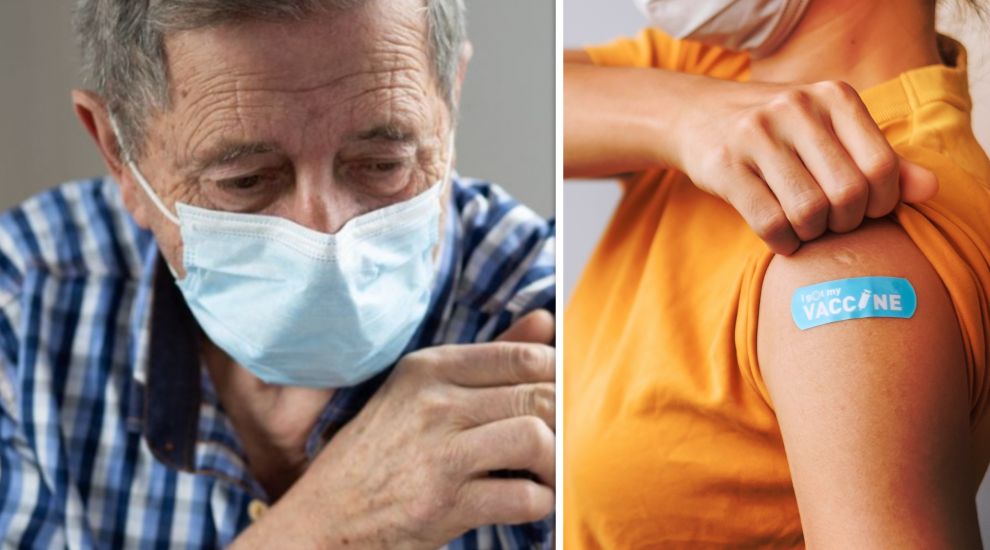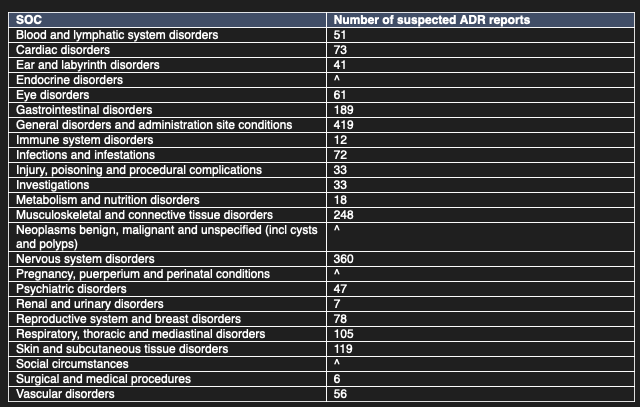


There have been 12 reports to the Medicines & Healthcare products Regulatory Authority (MHRA) Yellow Card scheme – in the Channel Islands - about the vaccine where a fatal outcome was recorded.
Despite this, the States of Guernsey have sought to clarify the Yellow Card Scheme and its findings after revealing that no actual deaths were recorded in 2020, 2021 or 2022 where a covid vaccine was a primary or secondary cause of death.
The Yellow Card scheme is operated by the MHRA to record suspected safety concerns with healthcare products. It was promoted throughout Guernsey and Jersey’s vaccine programmes as the appropriate avenue for people to submit suspected side-effects to the vaccine.
"The development of Covid-19 vaccines was undertaken at pace," according to a recent report published by Public Health. However, it has consistently been stressed that the usual checks and balances were undertaken to make sure "patient safety was no compromised". Guernsey's Public Health took advice throughout the pandemic from the MHRA and the Joint Committee for Vaccination and Immunisation on which vaccines to use and when to administer them.

Pictured: Beau Séjour was outfitted for the vaccination programme in 2020.
In December 2020 the first vaccine was administered and subsequently three vaccines were approved for use in Guernsey; AstraZeneca, Moderna and Pfizer.
The covid vaccine has since fallen into the 'business as usual' category alongside multiple other vaccines offered by Public Health. The Spring Booster Programme started in April and is available for adults aged 75 and over, residents in care homes and individuals aged 5 and over who are immunosuppressed.
As the vaccine programme continues, the advice continues to be that any suspected side-effects should be reported to the Yellow Card scheme.
The MHRA has since supplied Express with the data it collected from the Channel Islands, from people who self reported suspected side-effects:
Express submitted a Freedom of Information request to the MHRA asking for all Yellow Card reports from the Channel Islands and for the number of suspected fatalities.
The MHRA revealed it had received 851 spontaneous suspected Adverse Drug Reactions (ADR) associated with covid vaccines from the entire Channel Islands. It also indicated that 12 of those reports ‘concern a fatal outcome’.
It said these ‘fatal outcomes’ related to cardiac disorders, administration site conditions and nervous system disorders, among many others.
While the MHRA did provide the data, it did not distinguish between Guernsey and Jersey and simply lumped all the data together under the Channel Island banner, so it’s unclear where the ‘fatal outcomes’ were reported from.
The results were broken down by gender, with 599 reports from females and 212 by men and 40 from 'unknown'.

Pictured: A table provided by the MHRA outlining suspected adverse drug reactions reported up to and including the 23 April 2023.
These figures were initially put to the States of Jersey who said that, despite the MHRA data, there have been no recorded deaths in the island due to the covid vaccine.
Express put the findings to Public Health who responded as follows:
“Having reviewed the death data for 2020, 2021 and 2022 we can confirm that we have no deaths where COVID-19 vaccines are noted as the underlying or secondary cause of death.
“The Yellow Card Scheme operates to identify potential problems and can be used to researchers/regulatory bodies to focus future research or investigation e.g. from rare side effects or safety concerns, but any clinician can send a report and this is not the same as proving causality.
“In contrast, cause of death is managed through a rigorous death certification process and that is a much more reliable data source.
“Vaccination undoubtedly saved many lives in the last couple of years and most side effects from vaccination are mild and time-limited.”
Being unable to prove causality between the vaccine and a suspected side effect could therefore make the entire Yellow Card system seem rather pointless, however, Public Health has stressed that people need to understand what the data can prove and what it cannot.
“The Yellow Card scheme provides very important information... The idea of the data is to allow MHRA to look at trends in reporting and investigate where they see a trend that is higher than the background rate. This can result in the identification of new safety issues.
“In simple terms that means we would always see disease and chronic illnesses in our community whether we are running a vaccine programme or not. Data that is held across a number of jurisdictions allows MHRA to understand what the normal rate of this is - this is the background rate. Using Bell’s Palsy as an example, the Yellow Card system allows MHRA to look at the rate of Bell’s Palsy reports in individuals who have received a specific drug (be it a vaccine or something else) and compare this to the background rates."

Pictured: Public Health said, “the Yellow Cards collects lots of data, such as age, gender, other medications taken etc. This allows the MHRA to compare rates across different subsections of those groups and also contact the reporting clinician or service user (family member) for more details where required".
“As the MHRA collect this data from across the UK and Crown Dependencies, this provides them with a depth of data to support the identification of any trends not detected in clinical drug trials and undertake further work to understand if this is a concern that needs to be added to the information provided to drug recipients or any other intervention required," continued Public Health.
“In addition to the yellow card system, clinical vaccine trails have long term follow up arms, which require vaccine developers to continue to follow up trial participants on a longer term basis. The length of these is decided by the appropriate clinical trials body within the jurisdiction the trail is registered and agreed.”
In the UK, if a person becomes severely disabled after taking certain vaccines they can claim a one off payment through the Vaccine Damage Payment scheme. The lump sum of £120,000 can also be claimed on behalf of someone who has died due to complications caused by a vaccination.
When asked about this, HSC said: "Guernsey does not have the equivalent of the Vaccine Damage Payment Scheme, which is supported by legislation in the UK".
Comments
Comments on this story express the views of the commentator only, not Bailiwick Publishing. We are unable to guarantee the accuracy of any of those comments.